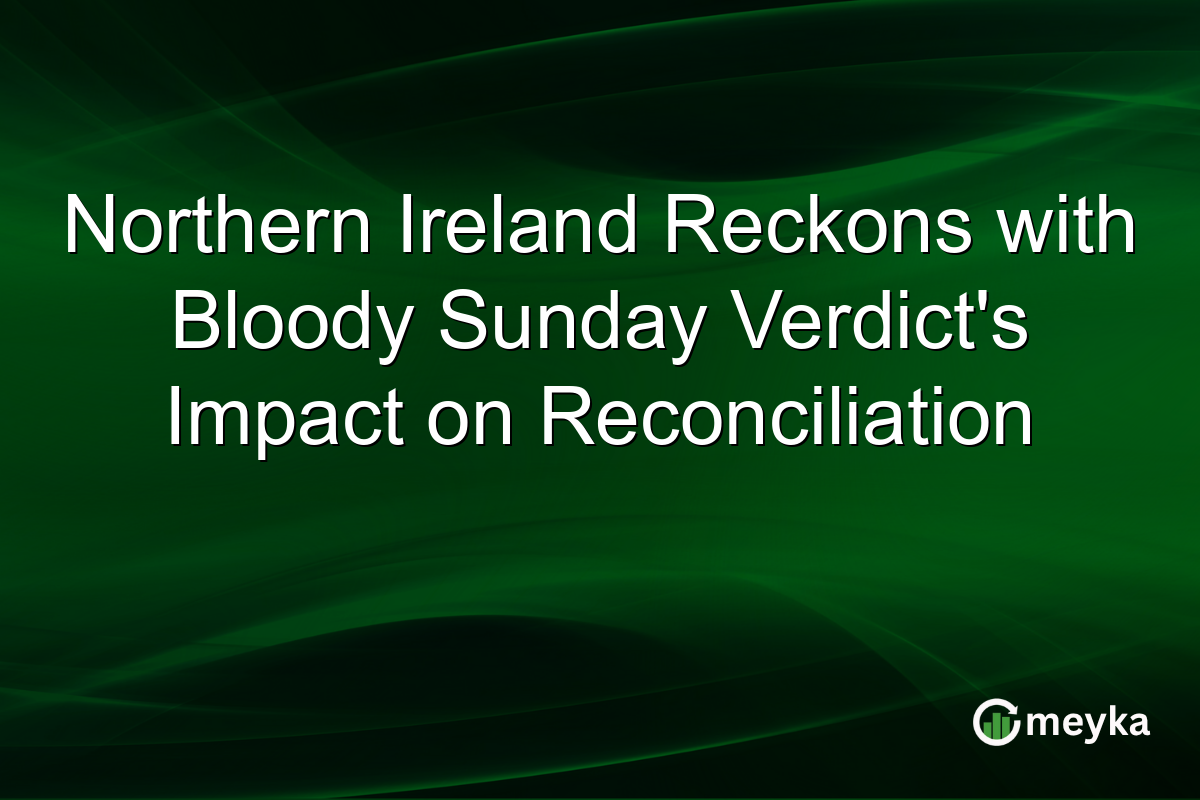Northern Ireland Reckons with Bloody Sunday Verdict’s Impact on Reconciliation
The recent not guilty verdict in the Soldier F trial over the Bloody Sunday killings has rekindled intense debates in Northern Ireland. As communities navigate the ongoing challenges of reconciliation, questions of justice and accountability remain prominent. Bloody Sunday, a catastrophic day during the Northern Ireland conflict, still significantly influences societal dynamics today.
Historical Context and the Bloody Sunday Verdict
Bloody Sunday, which occurred on January 30, 1972, was a defining event in Northern Ireland’s tumultuous history. On this day, British soldiers shot 26 unarmed civilians during a protest march. Recent verdicts regarding Soldier F, a former British soldier facing charges for two murders on Bloody Sunday, have deeply divided public opinion. The decision not to prosecute comes after decades of investigation and debate over legal accountability. This highlights the complexities in prosecuting cases from the Northern Ireland conflict.
Social media platforms have been abuzz with reactions, showing the emotional impact and the ongoing demand for justice. This verdict underscores a broader tension between pursuing historical accountability and moving toward societal healing.
Legal Accountability and Its Challenges
Addressing past injustices through legal measures remains a contentious issue. The Soldier F trial vividly illustrates difficulties in holding individuals accountable for historical events. Many argue that pursuing prosecutions in such cases may reignite old wounds, complicating reconciliation efforts. Conversely, survivors and families seek closure through accountability, emphasizing the need for legal and moral redress.
The verdict has highlighted systemic challenges in handling legacy cases, with some advocating for alternative conflict resolution mechanisms. The quest for accountability continues to be a pillar of Northern Ireland’s journey toward peace.
Impact on Northern Ireland’s Reconciliation Process
The verdict has re-opened discussions about Northern Ireland’s reconciliation progress. The Bloody Sunday incident, symbolic of the wider Northern Ireland conflict, demonstrates how unresolved historical grievances persist. The verdict in Soldier F’s trial has prompted reflection on how past conflicts can influence modern-day coexistence.
This has significant implications for ongoing peace-building efforts. Critics assert that unresolved grievances hinder community cohesion, while some experts urge a focus on restorative justice and dialogue. Policymakers and community leaders must navigate these dynamics carefully to foster long-term peace.
Final Thoughts
The not guilty verdict in the Soldier F trial over the Bloody Sunday killings has once again highlighted Northern Ireland’s delicate balance between justice and reconciliation. While the legal outcomes may leave some dissatisfied, they serve as a crucial reminder of the complexities involved in addressing historical conflicts within a contemporary setting. For Northern Ireland, the path ahead involves not only re-evaluating methods of legal accountability but also fostering an environment where old wounds can begin to heal through meaningful dialogue and restorative efforts. As the community continues to grapple with these challenges, sustained focus on genuine reconciliation becomes essential.
FAQs
Bloody Sunday refers to the events of January 30, 1972, in Derry, Northern Ireland, when British soldiers shot 26 unarmed civilians during a civil rights protest. It remains a pivotal event in the history of the Northern Ireland conflict.
The Soldier F trial is significant because it represents an attempt to hold individuals accountable for actions during the Bloody Sunday incident. The recent not guilty verdict has sparked debate about justice and reconciliation regarding historical conflicts.
The verdict affects reconciliation efforts by reopening wounds and highlighting unresolved grievances from the past. It also challenges policymakers to find balanced approaches between pursuing justice and fostering peace.
Arguments for prosecuting historical cases emphasize justice and closure for victims’ families. Opponents argue that these cases may exacerbate tensions and hinder reconciliation. The debate reflects broader challenges in addressing legacies of conflict.
Disclaimer:
This is for information only, not financial advice. Always do your research.






